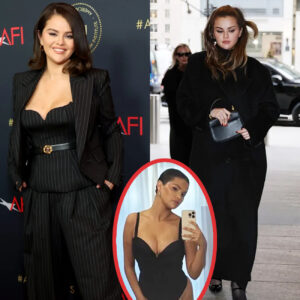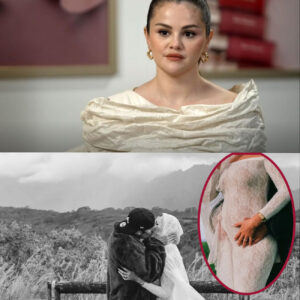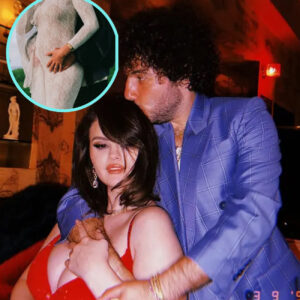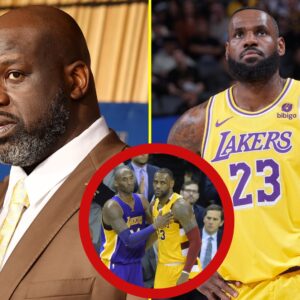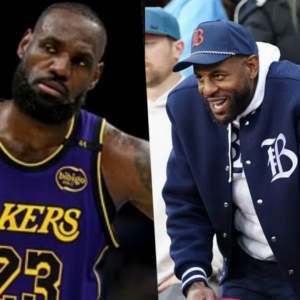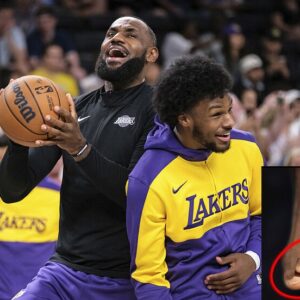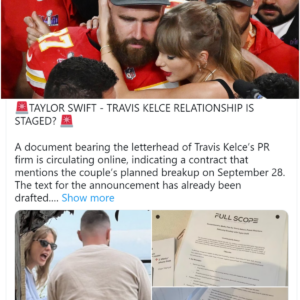As debates rage in the music industry regarding male entitlement and dominance, the singer-songwriter does not hold back, as Damon Albarn discovered.

Hell hath no fury like Taylor Swift scorned. Just ask Damon Albarn, the frontman of Blur and Gorillaz, who made a spectacularly silly and sexist remark about the US pop star – and received a stinging rebuke in front of her 90 million Twitter followers.
Swift’s response was sharp and brutal. “I was such a big fan of yours until I saw this. I write ALL of my own songs. Your hot take is completely false and SO damaging,” she told Albarn on Twitter on Monday evening. “You don’t have to like my songs but it’s really f—– up to try and discredit my writing. WOW.”
She followed up her message with a pointed remark: “PS I wrote this tweet all by myself in case you were wondering.” Ouch.
Albarn, who apologized “unreservedly and unconditionally” and acknowledged that his comments on songwriting had been “reduced to clickbait,” really should have known better. Swift, 34, has a history of calling out attempts to diminish her accomplishments, especially if they carry a hint of sexism, intentional or not. She is known for not taking criticism lying down. And the half a million ‘likes’ she received for each of her responses to Albarn’s comments suggest that her fans are firmly in her corner. This is a good thing, especially as debates continue in the music industry regarding male entitlement and dominance. Swift is the woman that the record industry needs right now.

Albarn has claimed his comments were reduced to ‘clickbait’
First, let’s delve into Albarn’s thought process. During an interview with Mikael Wood, the pop music critic for the LA Times, Albarn discussed an upcoming concert featuring just him, a piano, and a string section. He remarked that stripped-back concerts are challenging because “you can’t hide behind anything,” and they reveal whether songs are genuinely good or merely popular due to the “sound and the attitude” involved in performing them with a full band.
Albarn, somewhat pompously, suggested that not much modern music could withstand such exposure. When Wood asked him if he believed many modern musicians rely on sound and attitude, Albarn replied, “Name me someone who’s not.” It was at this juncture that Wood interjected, stating, “She may not be to your taste, but Taylor Swift is an excellent songwriter.” This prompted Albarn to assert that Swift doesn’t write her own songs and that co-writing doesn’t count.
Apart from anything else, these comments are incredibly hypocritical. The liner notes on Albarn’s latest album, The Nearer the Fountain, More Pure the Stream Flows, claim that all tracks are written and produced solely by him. However, immediately underneath, it’s mentioned that all but two of the LP’s 11 tracks feature “additional writing” by former Verve guitarist Simon Tong (who contributed to nine songs), Gorillaz musician Mike Smith (who worked on three), and German conductor André de Ridder (two). The distinction between being an “additional writer” (acceptable to Albarn) and a “co-writer” (deemed irrelevant) is perplexing.
Indeed, Albarn is renowned for his collaborations in the music industry, whether with Gorillaz (where he’s worked with Snoop Dogg, Lou Reed, and Savages’ Jehnny Beth) or artists like Bobby Womack and the Malian duo Amadou & Mariam.
His talent for collaboration makes his comments even more bewildering. Furthermore, Albarn expressed admiration for Billie Eilish during the LA Times interview. However, Eilish co-writes all her songs with her brother Finneas. So, does she count?

Swift, for her part, has either written or co-written every track across her nine multi-million-selling studio albums of pop and, more recently, indie folk music. While she collaborates more now than she used to (notable co-writers include the National’s guitarist Aaron Dessner, Bleachers musician Jack Antonoff, and uber-producer Max Martin), she certainly cannot be accused of not writing her own music.
The disparities between her and Albarn thus come down to genre and, according to some, gender. He is perceived as a songwriter, while she is labeled merely as a pop star.
Swift’s collaborators were swift to defend her. “I’ve never met damon albarn [sic] and he’s never been to my studio but apparently he knows more than the rest of us about all those songs taylor writes and brings in. herb,” wrote Antonoff (‘herb’ being slang for a person worthy of being mocked). Dessner stated that Albarn’s statements “couldn’t be further from the truth” and that the Blur singer was “obviously completely clueless as to her actual writing and work process.”
Musicians accused Albarn of sexism. Catherine Anne Davies, who records as The Anchoress, expressed that she’s “angry but not surprised” by the comments. She suggested that such assertions stem from a perception that the music industry remains a man’s domain. This is reflected in the fact that only two per cent of music producers are women and that many women eventually exit the industry altogether. “It’s the same shitty attitude I’ve encountered for the last six years, day in day out,” Davies says. “Imagine being as successful as she [Swift] is and still being questioned as to your skills and talents.”
Swift rarely holds back when it comes to what she perceives as sexism. Her longstanding feud with Kanye West began in 2009 when the rapper interrupted Swift’s acceptance speech at the MTV Video Music Awards because he believed Beyoncé deserved the award. While they seemed to reconcile, tensions resurfaced when West released the song “Famous” in 2016, containing the lyrics “I feel like me and Taylor might still have sex / Why? I made that bitch famous.” West claimed Swift had approved the lyrics in a phone call, but Swift’s team stated she had cautioned him against releasing a song with such a “strong misogynistic message.” The accompanying video depicted a Swift lookalike in bed with likenesses of Donald Trump, George W. Bush, and West himself.

Kanye West interrupts Swift’s acceptance speech at the 2009 MTV Video Music Awards, sparking a feud between the two
Swift’s sensitivity to sexism is immensely significant for the industry. Despite all three major record labels being led by men, the best-selling albums in the US for six out of the last seven years have been by women (with Swift leading the charts on five of these occasions). Even in the UK, when excluding heritage acts, the album chart last year was dominated by Adele, Olivia Rodrigo, Dua Lipa, and Ed Sheeran.
In a 2019 interview with CBS, Swift articulated her stance on sexism: “A man does something, it’s ‘strategic’; a woman does the same thing, it’s ‘calculated’. A man is allowed to ‘react’; a woman can only ‘over-react’. It goes on and on.” This viewpoint was encapsulated in the promotional video for her 2020 song “The Man.” Directed by Swift herself, the video featured her portraying a male character named Tyler Swift, highlighting the double standards men face. The character indulged in boorish behavior at nightclubs and played the role of a devoted father during the day.
Even if – as Albarn claims – his comments were misconstrued or misreported, facing public criticism cannot be pleasant. At a show in LA on Monday night, Albarn acknowledged that he had been “cast into the social media abyss” by the LA Times’ Wood. He then ironically dedicated Blur’s Song 2 to the journalist.
Swift must continue to hold individuals accountable. As fellow musician Davies points out, Swift’s global stature makes this imperative. “Taylor gets an apology because she’s successful enough to call [Albarn] out publicly,” she says. “The rest of us have to suck it up on a regular basis.”
News
Lưu Hương Giang quyết định cho Hồ Hoài Anh cơ hội sau ‘Đạp gió rẽ sóng’. Nữ ca sĩ liền báo có tin vui👇
Lưu Hương Giang quyết định quay về với gia đình sau ‘Đạp gió rẽ sóng’ Ca sĩ Lưu Hương Giang đã không buồn khi phải chia tay…
Selena Gomez reflects on her body’s changes in throwback swimsuit photos: ‘I will never look like this again’
Selena Gomez has opened up about her appearance while candidly reflecting on her body’s changes throughout the years. Taking to her Instagram Story Monday night, the actress/singer showed her…
Selena Gomez takes a bite of boyfriend Benny Blanco’s cake in suggestive photo
Selena Gomez shared a suggestive snap eating a cake depicting boyfriend Benny Blanco.Selena Gomez/Instagram Selena Gomez can’t keep her mouth to herself. The singer took a bite…
Justin Bieber’s mom reacts to rumors Hailey is pregnant with twins
Justin Bieber’s mom had to clarify how many babies her son and daughter-in-law are having after sparking rumors that they could be expecting twins. After the Rhode founder’s…
Selena Gomez explained why she disabled Instagram comments just days before Hailey Bieber’s pregnancy news
No need to “Kill Em with Kindness” — Selena Gomez’s haters can’t even comment on her social media uploads. The actress explained her decision to limit her…
Selena Gomez flaunts Benny Blanco romance after Justin and Hailey Bieber’s pregnancy announcement
Selena Gomez flaunted her relationship with Benny Blanco after Justin and Hailey Bieber revealed they were expecting their first child.Selena Gomez/Instagram Selena Gomez showed off her romance with…
End of content
No more pages to load

